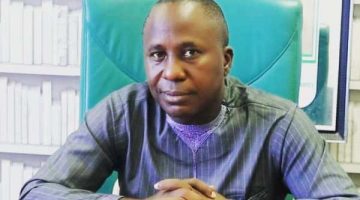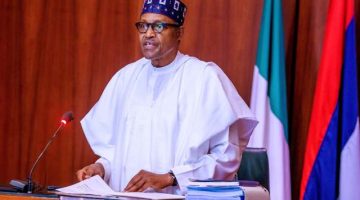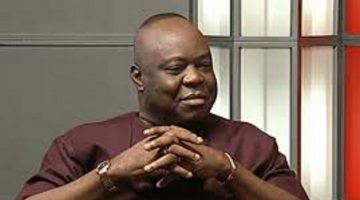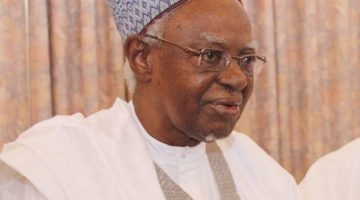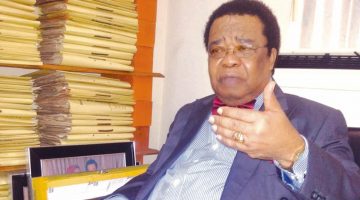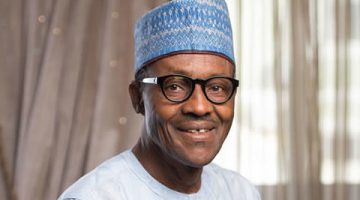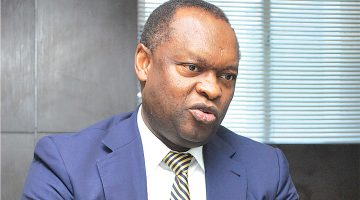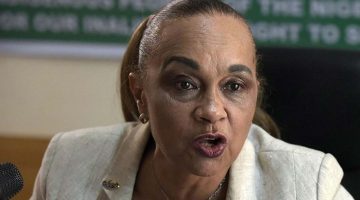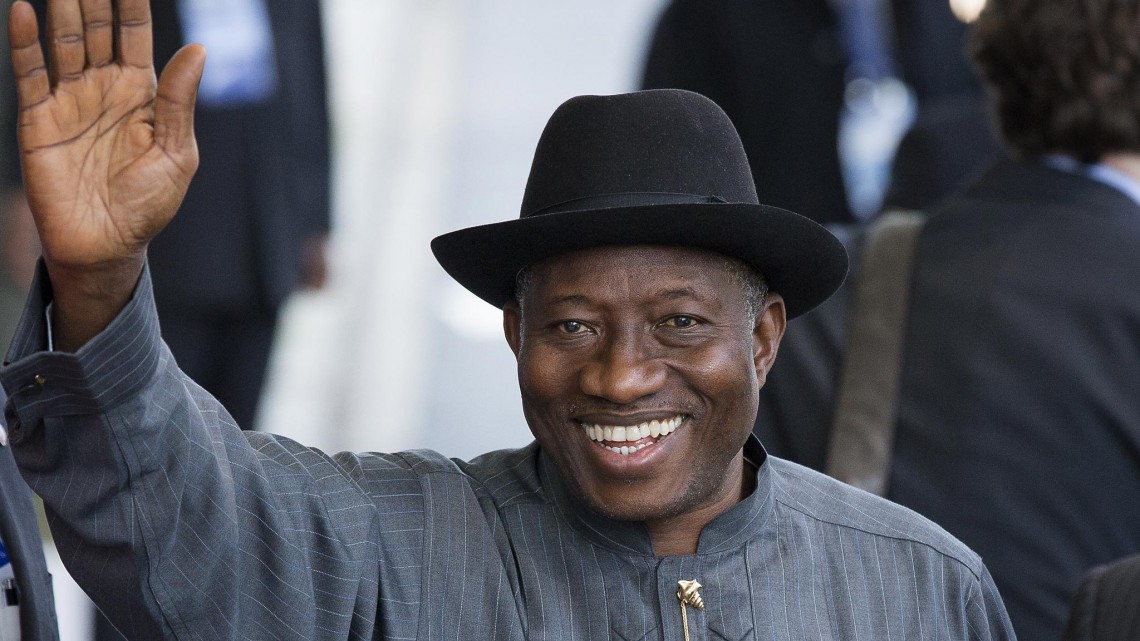Convener of the Coalition of Northern Politicians, Academics, Professionals and Businessmen, Dr. Junaid Mohammed, in this interview with TOBI AWORINDE, evaluates the government of President Goodluck Jonathan
What do you think are the highlights of President Goodluck Jonathan’s administration?
I believe, for most Nigerians, the highlight of Jonathan’s administration is the heightened terrorist activities in the country. Another is the enormous corruption, which, even by the standard of Nigeria, is unprecedented. There has never been any government in this country as corrupt, indolent and irresponsible as this government. Also, for a nation which has so many ethnic groups, religious differences, and identities, one was expecting a measure of inclusiveness. Unfortunately, Jonathan and his cabal are the most divisive set of people to have been at the top of an administration in this country.
Frankly speaking, I can’t think of anything I would regard as a positive highlight. Everything that I can think of, which I consciously or otherwise associate with this President, is terribly negative. I hope I am not disappointing you, but I have nothing positive to say about the government.
Why is corruption believed to have thrived under Jonathan’s administration, despite the checks and balances that the constitution provides?
Checks and balances only work if they are being applied to control political will. It requires a measure of sincerity for him to use the checks and balances in order to tackle corruption. Clearly, the institutions are there. Clearly, most of the checks and balances are there. But as we see, the tragedy of Jonathan and his administration is that they have nothing but contempt for Nigerians and the institutions that make up Nigeria. So, he feels he can play with everybody’s intelligence. If you are caught involved in some malpractice and you happen to be one of his favoured people, he would say, ‘No, you are not corrupt; maybe you did a little bit of stealing.’
As you mentioned, there have been several allegations of marginalisation under Jonathan, especially by the South-West and the North. What is responsible for this?
There have been deliberate efforts to marginalise certain sections of the country. The background that somebody comes from, his culture and certain things that make him tick clearly influence whatever he does: good or bad. For example, I lived in Port Harcourt for four years as a federal commissioner. I noticed that within the same broad South-South zone, there are some people you can regard as conceited. They believe that apart from their village, settlement or creeks, there are no other people who live elsewhere. I suspect that is the same attitude Jonathan has; that apart from the Ijaws, there are no other human beings and that what is uppermost in his mind is that Ijaws must be gratified or favoured in everything. Where he cannot get Ijaws, he looks for other people from the South-South, or preferably from the Igbo. Therefore, if you come from that background, it is always safe. If you have no consideration for other people other than your own, it shows. I believe that it was a tragic mistake that we had to end up with this kind of character as a president because he is so unilateral in everything he does. I don’t see how that kind of person can successfully govern a country of almost 300 ethnic groups and do justice to all. He hasn’t done that; he has failed woefully and I am not surprised that he has. Don’t forget that he worked directly under me when I was at the Oil Mineral Producing Areas Development Commission. Therefore, I know a little bit about him even before he became the acting president.
Are you saying the South-South ganged up with the South-East to marginalise other regions in the country?
If you compare man for man, the South-West has more people that are better educated with university degrees than the entire South-South. But when you look at the protocol list of the top 20 officials in the country, from the President downwards, there is only one Yoruba man. I am not trying to incite any unnecessary fears, but if all the appointees were chosen based on merit and there was no qualified Yoruba person who could be in that group of 20, I am prepared to concede. But the fact of the matter is that for every one out of those 20, there are thousands of Yorubas who are qualified but were not appointed. If you don’t call that marginalisation, then I don’t know what it is. You can make an excuse that maybe northerners like me are not educated. That was what Edwin Clark said until he had to admit at the National Conference that he was mistaken and he had become aware that the governors were also educated.
The reality is that there was a deliberate machinery set in motion to alienate certain sections of the country; the entire North and the South-West were particularly singled out for marginalisation and, to a large extent, that succeeded. Look at the economy, for instance; it is headed by a woman who started her career as a geographer that was bundled up and shipped to Nigeria to be made Minister of Finance and Coordinating Minister of the Economy. The Governor of the Central Bank of Nigeria is an Igbo man. Within the CBN, there is an agency called the Assets Management Company of Nigeria. For the most part, it has been headed by Igbo men. The Nigeria Economic Summit Group is also headed by an Igbo man. The Securities and Exchange Commission, until two months ago, was headed by an Igbo woman. The Manufacturers Association of Nigeria has been headed by an Igbo man.
If you look carefully, you will notice that the movers and shakers of the national economy are Igbos, and not because they are the best or the brightest, but simply because they could not find Ijaw people. Now that this so-called Coordinating Minister of the Economy has driven the economy into a ditch, we are being confronted with economic disaster for which every Nigerian, whether Igbo or non-Igbo will pay a price. We now have the highest level of unemployment in the history of this country, in addition to corruption.
Economic experts have repeatedly called for a diversification of the country’s economy. Do you think Jonathan’s government has done enough in the agricultural sector to reduce the country’s reliance on crude oil?
In all fairness, it takes a while to diversify the economy. Any talk of diversification of the national economy will have to focus on royalties or tangibles, as they say. How many people are employed in the oil sector today, compared to the number of people who are employed in the agricultural sector? Yes, oil contributes substantially to our earnings in foreign exchange. But in terms of gross domestic product, agriculture is still ahead of oil and it is the mainstay of the economy. I don’t know the latest, but when I was involved in the industry up to five years ago, I knew that the total number of people employed in the oil sector was not more than two to three million. And till now, over 60 per cent of employment in the makings of the national economy is based on agriculture. Whether we like it or not, it is agriculture that will have to be diversified for our economy to be called a diversified and balanced economy.
Secondly, it takes time to diversify any economy and when you look at oil on one hand and agriculture on the other, the two are miles apart. There is no connection between oil and agriculture. If anything, wherever you have oil exploration activity, it has the effect of destroying our soil and you cannot engage in agriculture without an enabling environment, in terms of land and water. For anyone to talk about diversification of a nation’s economy, he has to have a long-term view. It is not something a politician can do easily because if he gives himself a timeline, it would be a serious mistake. The process of diversification has many linkages and unless those linkages are understood, explored and are sincerely connected, there can be no diversification. This government has made a lot of noise about diversification of economy, but you don’t develop agriculture by making a noise about it.
What should Jonathan have done differently in tackling insecurity?
There is one word for it: merit. Since he came to office, every single key appointment in the Nigerian Armed Forces and the Nigerian security establishments like the State Security Service and the Police has been made on the basis of nepotism and corruption. For example, if you appoint an Inspector-General of Police for the purpose of manipulating elections, that is corruption. If you appoint Brigade Commanders, Battalion Commanders and General Officers Commanding, not on the basis of competence or professionalism, but on the basis of their ability to do their bidding and you then post them to areas where they will make money and perhaps, allow terrorists sponsored by the government to go scot-free, that is also corruption. If we had had the service chiefs we deserved, particularly in the Army, the situation of Boko Haram could have happened but certainly, it would not have risen to the ugly levels that we are witnessing. And I believe that if anybody is going to do anything about the security challenge, he is going to have to go back to the root of the problem.
How will Jonathan be remembered?
I don’t see him being favourably considered by history. But as far as I am concerned, he is already history. He will be remembered as the man who messed up security, the first president to be defeated in a reasonably free and fair election, and one whose government is the worst in terms of corruption.
Copyright PUNCH.


